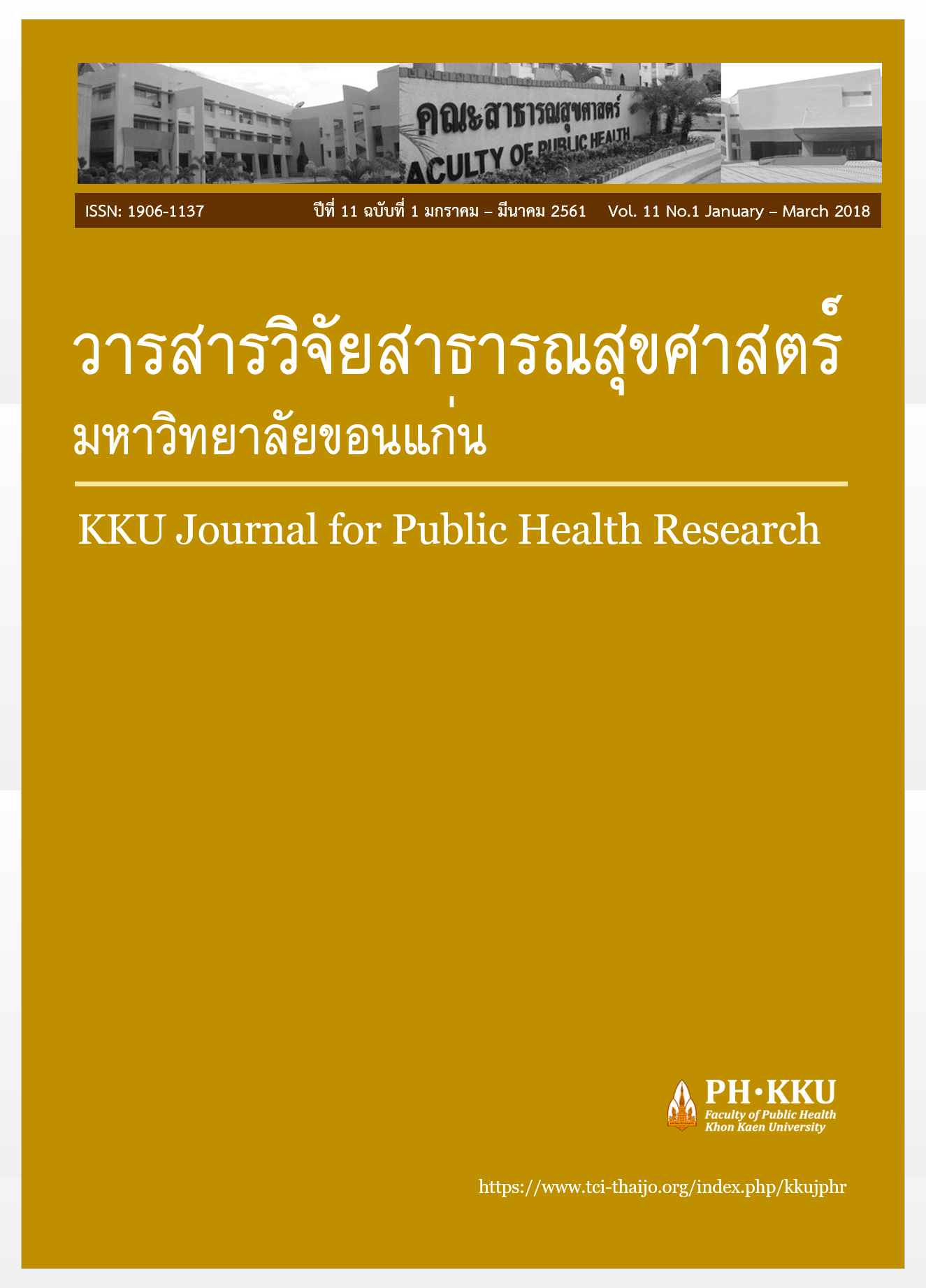Effect of the Appreciation Influence Control Workshop on Knowledge and Awareness Regarding Food Sanitation of Food Handlers in Restaurants in Nakhon Pathom Municipality, Nakhon Pathom Province
Keywords:
Participatory Process Training (A-I-C), Knowledge, Awareness, Food Sanitation, Food HandlersAbstract
The objective of this two- groups quasi- experimental research was
to compare knowledge and awareness regarding food sanitation of food
handlers in restaurants of Nakhon Pathom Municipality. The study sample
were 60 restaurant food handlers in Nakhon Pathom Municipality. They
were equaly assigned in to an experimental and a comparison group. The
experimental group samples were required to attend a workshop training
program that participatory process based on Appreciation Influence Control
(A-I-C) concepts were applied to enhance their knowledge and awareness
about food sanitation. While the comparison group samples did not receive
any intervention activity. Data was collected before and after experiment
from both the experimental and the comparison group. Data was analyzed
using descriptive and inferential statistics.
Results of the study showed that after experiment the experimental
group had significantly higher knowledge mean score on food handlers
(mean score of 20.6±2.0 points) than before the experiment (mean score
of 15.9±2.9 points) (p-value=0.001). While the mean score on food handlers
of the comparison group before the experiment (mean score of 14.6±3.2
points) was not statistically different from after the experiment ( mean
score of 14. 2±2. 7) at the p- value of 0. 05. Regarding awareness about
food sanitation, the experimental group gained significantly higher
awareness mean score after the experiment ( mean score of 4 6 . 6 ±3 . 8
points) than before the experiment ( mean score 3 9 . 8 ±2 . 2 ) ( pvalue=
0 . 0 0 1 ) . The pre- test awareness mean score ( mean score of
3 3 . 6 ±2 . 0 points) of the comparison group was not significantly different
from the post-test awareness mean score (mean score 33.5±1.9) at the pvalue
of 0. 05. However, prior to the experiment, the awareness mean
score of the experimental group was significantly higher than of the
control group (p-value=0.001)



